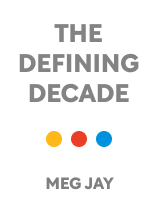

This article is an excerpt from the Shortform book guide to "The Defining Decade" by Meg Jay. Shortform has the world's best summaries and analyses of books you should be reading.
Like this article? Sign up for a free trial here .
When should you have a baby? Should it be sooner rather than later?
Everyone’s decision regarding if and when they want to start a family is different. But Meg Jay, the author of The Defining Decade, advises that everyone should be aware of their body’s limitations, and plan accordingly.
Read more about what this means, and how to answer the question “when should you have a baby” for yourself.
When Should You Have a Baby?
When should you have a baby? That’s a big question and everyone’s answer is different. But author Meg Jay suggests that when planning, you should take into account your body’s limits.
Be Aware of Your Body’s Childbearing Limits
As people marry later, more couples are having their first child in their thirties and even forties. People often justify their decision to put off childbearing by pointing to celebrities or friends who have started families late. But anecdotal stories of success are not representative of the true difficulty that couples face when they try to start families late.
Putting off starting a family greatly increases the chances of running into fertility issues. Having sex around the time of ovulation has about a 20 to 25 percent success rate of conception up until around age 35. Then the rate starts to drop, until it’s only five percent at age 40 and two percent at age 42.
If you need fertility treatments, they are expensive, and get more so as you age. Because older couples need more treatments on average per successful birth, a twenty-something couple may pay $25,000 for a baby but a couple in their mid-forties can expect to pay around $300,000—if they can find someone to treat them at all. Many fertility clinics will not treat women over 40 as the low rate of success brings down the rates the clinic can advertise.
Aging issues affect both men and women. Researchers find that older sperm is associated with neurocognitive problems in children like autism and schizophrenia.
Further, even when successful, having kids late can be difficult in other ways. The pressure to have kids when your time is running out can be an enormous stress on a marriage, particularly a new one. Then, if you want multiple children and you have back-to-back pregnancies to squeeze them in, you’ll end up with multiple very-young children, yet another stress.
Additionally, you may find yourself caught up in raising young kids just when your career starts hitting its stride. And, you might end up caring for your children just when you need to start caring for your own parents.
Finally, as you get older, your priorities are going to change. When you’re forty or fifty, you may very well wish to trade the years you spent on trivial activities in your twenties for more years with your kids, or eventually, with their kids. You also may wish that your kids could know your parents better as grandparents. If your parents had you in their late thirties and you have kids in your late thirties, your parents could very well be in their mid-seventies when your children are born. Their relationship as grandparents will inevitably be limited.
In sum, don’t fall into the trap that so many do, swayed by cultural myths of late-life fertility. If you think having children may one day be important to you, start to plan for it in your twenties, when you are still in control of the process.
So when should you have a baby? No one can answer that but you, but make sure you plan accordingly.

———End of Preview———
Like what you just read? Read the rest of the world's best book summary and analysis of Meg Jay's "The Defining Decade" at Shortform .
Here's what you'll find in our full The Defining Decade summary :
- Why the twenties are your most important decade
- How you were fooled into thinking it was an extended period of youth and freedom
- Why you should use this decade to find personal and professional success






